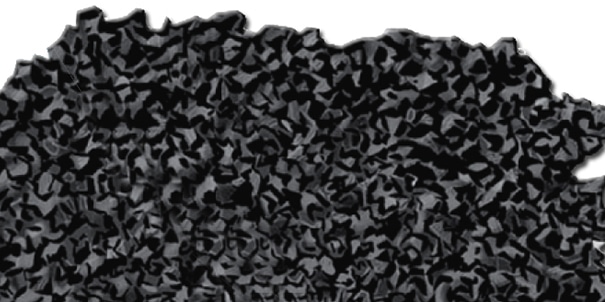Activated carbon filtration

ACTIVATED CARBON FILTRATION
Filtration using granular activated carbon (CAG) is a very common step in industrial or potable water production from groundwater or surface water.
CAG improves quality by eliminating :
- Compounds at the origin of tastes and odors
- Pesticides
- Colour
- Total organic carbon
- Trihalométhanes and disinfection products
- Chlorinated hydrocarbons and other volatile organic compounds (COV)
- Endocrine disruptors
- Drug and daily residues
Residual free chlorine can be reduced into harmless chloride by means of activated carbon.
It’s a very effective solution for chlorine removal before a reverse osmosis system.
In contact with activated carbon, chlorine reacts as follow :
C + 2 Cl2 + 2 H2O → 4 HCl + CO2

